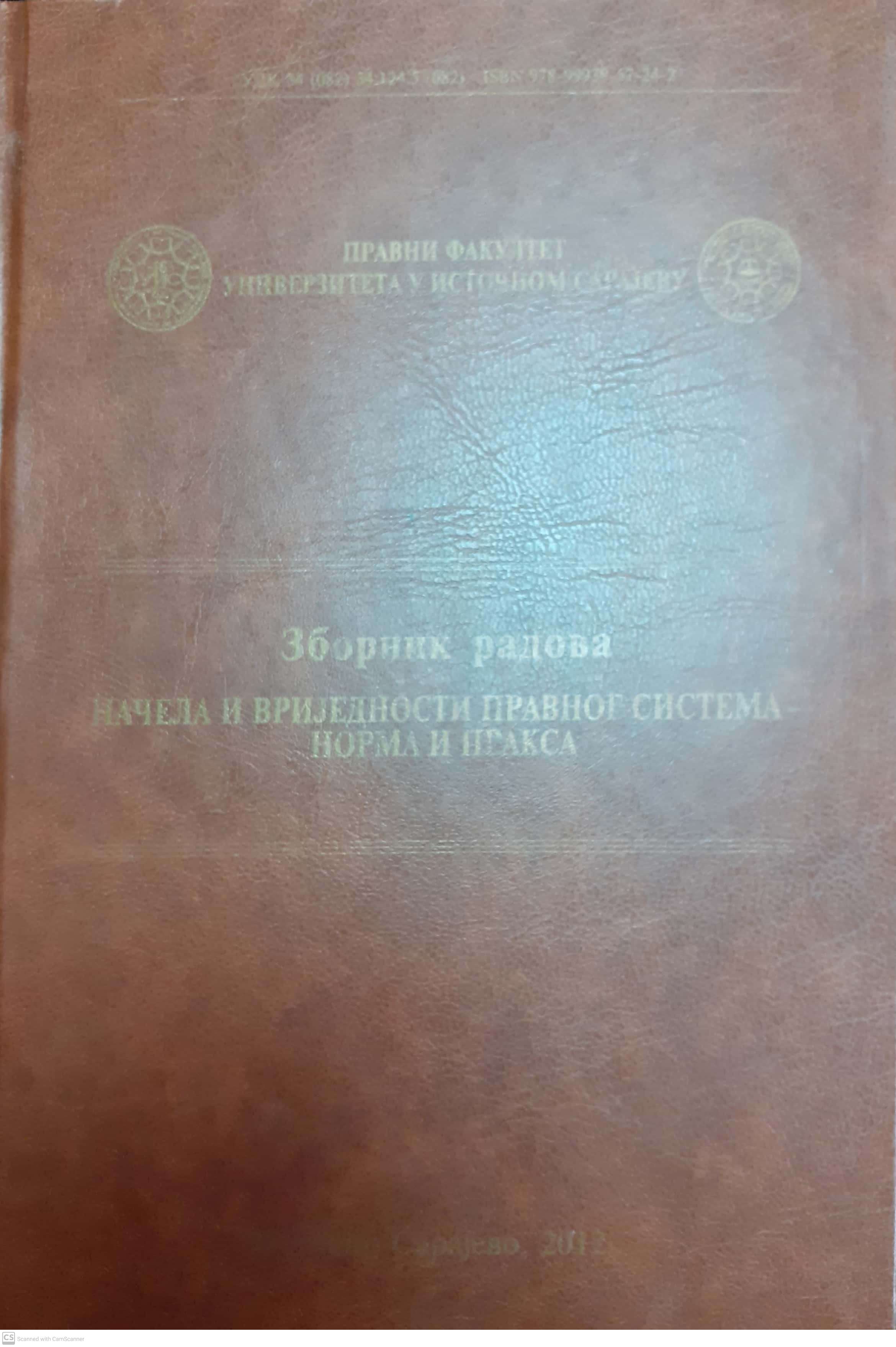Javni poredak u funkciji priznanja stranih odluka
Public Order in Function of Recognition of Foreign Decisions
Author(s): Biljana Vukoslavčević
Subject(s): Law, Constitution, Jurisprudence
Published by: Правни факултет Универзитета у Источном Сарајеву
Keywords: Public policy;Foreign court decisions;Foreign arbitral awards;Recognition procedure;
Summary/Abstract: Foreign court decisions cannot have an extraterritorial effect by default, nor can they have any effects outside the state of origin, without a certain control. This control, which is usually very limited, is performed by the recognition state in the so-called exequatur procedure. There are certain assumptions prescribed by national laws and international conventions, which need to be checked, and the assumption of public policy takes a very important place among them. This assumption is a protective tool that will enable the court of the recognition state to stop spreading of the foreign decision's effect on the local territory, for the simple reason that this decision violates the basic values of the national system. The interest of the recognition state which is embodied in the protection of the legal system, is opposed to the interest of international cooperation and recognition of the foreign decision which poses a potential threat to the national system.The public policy is an institute used by the state to protect the core values of the domestic legal system. This means that spreading of the effects of neither foreign court decisions nor arbitral awards will be allowed, if they are opposed to the fundamental principles that form the basis of the domestic law. Although the recognition court doesn’t review foreign decisions on their merits, the public policy institute also has its procedural dimension, and it is reflected in the need to protect certain procedural principles to which a special attention is given by the recognition state. It would be absurd to recognize a foreign decision if one of the parties was not allowed to participate in the rendering of the decision.The public policy consists of the fundamental norms of the domestic law, but that does not mean that the public policy is the same as the sum of all imperative rules. On the contrary, the public policy is a narrower category than a set of imperative rules, which is best reflected in the field of international arbitration.
- Page Range: 200-210
- Page Count: 11
- Publication Year: 2011
- Language: Serbian
- Content File-PDF

